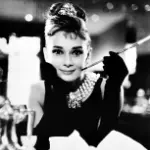It's been 15 years, and I still think about the ending of Inception. I know I'm not alone. Over the years, the ending of Inception has gained notoriety as audiences attempt to solve the puzzle at the end of Christopher Nolan's sci-fi puzzler. The director is still asked about the ending in interviews to this day and with good reason. Inception has one of cinema's all-time ambiguous endings, and I think it's the finale scene that makes the entire movie.
Inception is a movie about love, regret, and dreams, both tangible and metaphorical. It's the kind of movie for which Nolan has become known. Blockbuster spectacle that explores a profound human emotion in a high-concept world. Despite the storied career the director has had, I think Inception is a defining moment in Nolan's work. It's less convoluted in its concept than Tenet or Interstellar, but more ambitious than the likes of Insomnia or Memento. Beneath all that action and spectacle, there also lies a deeply personal human story about love, loss and leaving things behind. I believe it's the film that truly captures the essence of Nolan as a director, and it has the best ending of any of his films.

Inception stars Leonardo DiCaprio as Dom Cobb, an experienced thief in the world of corporate dream espionage. In this world, skilled “extractors” are contracted to steal secrets from a subject's subconscious, which they achieve through the use of experimental dream-sharing technology. Cobb is known for pushing the boundaries of this technology and using a dream-within-a-dream approach to fool the subject and achieve his goal. It's also revealed that Cobb has pushed the dream technology too far, which has led to his deceased wife Mal (Marion Cotillard) haunting his subconscious.
Cobb's skills catch the attention of the rich businessman Saito (Ken Watanabe), who employs him to undertake an impossible task known as inception - the concept of planting an idea in someone's mind rather than extracting one. In exchange, Saito will offer Cobb a pathway back to his family in the U.S., where he's been barred from entering due to his suspected involvement in his wife's death.
To complete the job, Cobb assembles a team of skilled extractors: Arthur, the researcher (Joseph Gordon-Levitt), Ariadne, the architect (Elliot Page), Eames, the forger (Tom Hardy), and Yusuf (Dileep Rao), the chemist. Their target is Robert Fischer (Cillian Murphy), the heir to a corporate empire whose father will soon pass away. Fischer is one of Saito's major competitors, and he wants to plant the idea in his rival's mind that he should break up his father's company, not continue it.
The film that follows is a carefully constructed, nail-biting sci-fi espionage thriller that asks you to question reality and wows you with the potential of dreams. It has no shortage of memorable scenes, like the spinning hallway fight, or the city of Paris skyline folding in on itself. But it's capped off by an ending that has the ultimate payoff.

From start to end, Inception drip-feeds information about the rules of dream-sharing: never recreate from memory, time operates differently depending on the layer of dreaming, use death or a kick (the feeling of falling) to wake up. As Inception is integrating these rules, it's also showing their consequences via the relationship between Cobb and Mal, in particular that too much dreaming can destroy your reality, and it has in Cobb's case. Cobb is the vessel for everything that can go wrong with dreams in this world and Inception takes us on a journey to see if he can rectify those mistakes.
After a lengthy heist sequence that sees the team go four layers deep into dreamland, Inception's third act draws on all the rules and consequences it has established prior. The team can't die in this dream because they're too heavily sedated and dying would result in them dropping into limbo. Limbo is described as raw infinite subconscious, a place where the dream is indistinguishable from reality, and a user's mind can get lost indefinitely. This is where Cobb and Mal lived out their lives together for fifty years. It's the reason that Cobb had to perform inception on Mal, and convince her that this reality wasn't real, which backfired when she took this mantra into the waking world as well.
To communicate this idea of dream versus reality, Inception introduces a very simple visual symbol. Each dreamer carries a totem that signals to them whether the world they're in is real. Cobb's totem is a spinning top that will spin eternally if he is in a dream, and will topple if he is awake. This totem is the crux of Inception's ending.

The ending of Inception sees Cobb stay behind in limbo to rescue Saito, who had died during the heist and was left stuck in the raw dream space. After years lost in limbo, the two reunite and remind each other that they are, in fact, in a dream and need to die to wake up. Cobb then wakes up on the plane to Los Angeles alongside his team. They've completed inception upon Fischer and Saito, honouring his agreement with Cobb, makes a call. Cobb is waved through border security with no issues. He returns home to his children, whose faces we finally see as they are reunited with their father after years of separation. It all seems too good to be true. Clearly, Cobb thinks so as well, so before he joins his family, he spins his totem one last time.
The final scene shows the totem spinning indefinitely. In the final seconds, it quivers as if it might fall, but the cut to black prevents us from ever finding out the truth. Is Cobb living out his dream in limbo, or is this his actual reality?
The final frame of the spinning top is the culmination of everything that has come before. Inception has given the viewer all the rules of the world and emotional stakes they need to go on Cobb's journey, and now the resolution hinges on the fall of this one totem. You can rewatch the scene as many times as you want to, but Inception won't give you a definitive answer. It's a perfect conundrum. It's this scene that elevates the entire movie.

It's a moment that has stuck with me for years. It's driven me down the Reddit rabbit hole of theories, I've pored over the Inception screenplay for hints and clues, and I've listened to dozens of Nolan's explanations in interviews over the years. Some say that the children haven't aged, so that's why Cobb must still be dreaming. Others argue that Cobb remembers all the steps to coming home, which defies the logic in dreams that you never remember how you arrived somewhere in a dream. Some people think the entire movie was a dream from start to finish.
Inception refuses to give you a resolution. Instead, it asks the audience to question the reality of the film, as it has the entire runtime. There are no incorrect answers about this ending, only interesting interpretations.
With that, Inception's ending not only makes you question the movie, but also yourself. The meaning you draw from it says something about you as a viewer. Are you obsessed with picking holes in the logic that might suggest Cobb never made it out? Or are you optimistic that Cobb finally earned his happy ending? Neither option is right or wrong, but it might say more about you than you realise.


































































View replies 3
View replies 2
View replies 2
View replies 0
View replies 0
View replies 0
View replies 0
View replies 0
View replies 0
View replies 0
See collapsed comments